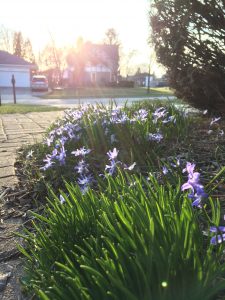
“Where is God in this mess?”
“Does God even hear my prayers?”
I hear these kinds of questions a lot–from others, and from my own heart. And in some of the situations where I sit with people in their pain, offering simply presence and prayer, I have to admit that I’m asking the same questions. Our souls ache when God seems far off, when doubt crowds in and faith flickers.
Right now, I’m in the midst of a work project that seems to be moving slow, hitting roadblocks, slogging through uncertainty. I keep asking God, “what I am supposed to be learning here?” I still am awaiting a response.
However: our inability to hear or feel God is not an accurate indicator of God’s activity in our lives. Here’s what I know: sometimes, God works in ways we cannot see or feel, in our limited capacity. God sees, hears, and works, friend–even if you can’t quite see it yet. Even if all seems dry and lifeless.
When God seems slow
As the Ignatian prayer of Pierre Teilhard de Chardin reminds us, we can Trust in the slow work of God.
If God seems to move slow, it’s because God sometimes does. We are hurried–it is not a good thing. God never is.
I was reminded of this truth this week as I walked around my yard. It is spring in the Midwest, which is to say one day it is snowing sideways and the next it is 50 and sunny and feels to our winter-weary souls like the tropics. Yet flowers are blooming and bees are buzzing.
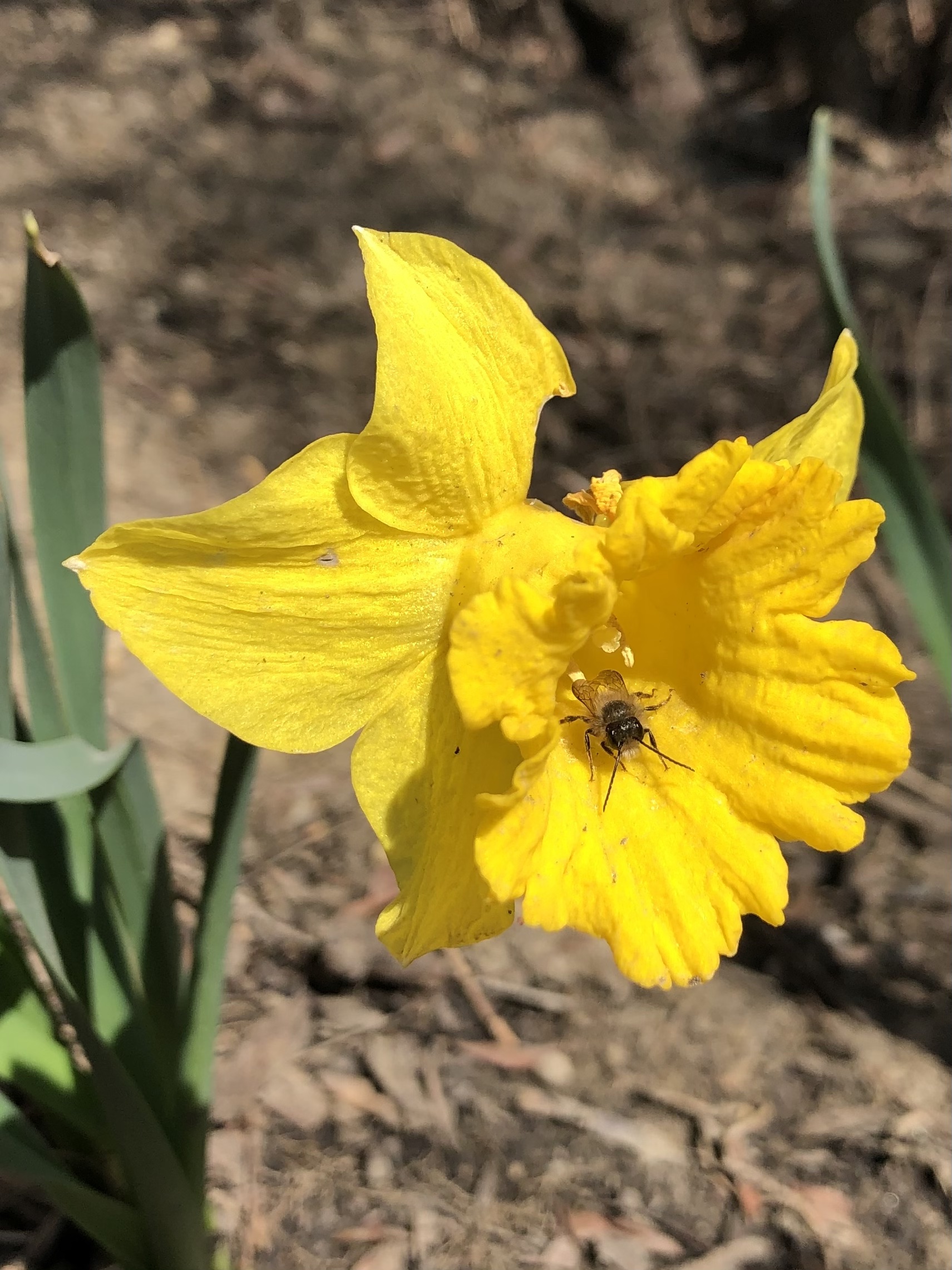
A bee explores a daffodil.
In spite of the lateness of spring this year, my yard is full of stubborn, sturdy flowers. Crocus, scilla, hyacinths, daffodils come up, even among the dry sticks and leafless branches. Bursts of color delight among the drab vestiges of winter. A week or two ago, my garden beds were a lifeless beige landscape. Now, bright purple and yellow blooms burst forth.
All of these flowers begin their lives as bulbs—wizened brown bits, reminiscent of dehydrated onions. In an autumn years ago, when my children were still small and underfoot, we planted bulbs. Digging holes, dropping in the small, seemingly lifeless orbs, covered in papery brown skins.
That spring, and every spring since, the bulbs shoot forth new life. Crocuses that often come up through the late spring snows. Scillia that have divided and spread and now line my front sidewalk. Flowers that sprout up in the middle of the lawn, where squirrels have buried stolen bulbs from the garden and forgotten them. Their inadvertent gardening means my lawn is scattered with blooms.
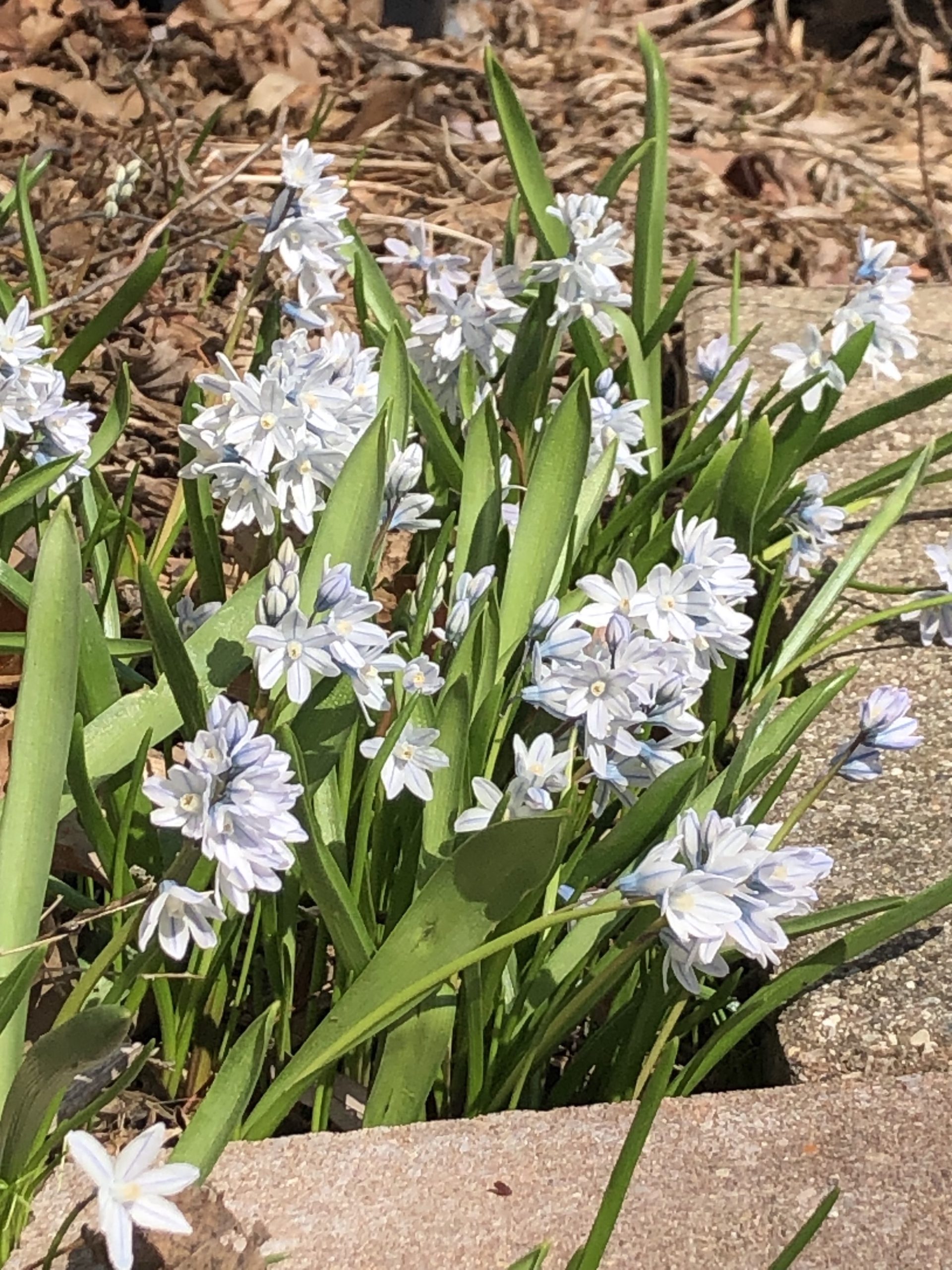
Beauty will come
My point is this. In winter, I cannot see the slow work of the bulb, under the frozen ground and layers of snow and ice. It seems the bulb is silent. And yet—beauty comes. Every year. And the beauty will only come if the bulb gets cold, and experiences winter. God, and the forces of nature created by God, are working below the surface. And the flowers trust in the slow work of God. The miracle of new growth, of seasons. Spring will follow winter.
The promise of beauty is not a promise that life will be easy and breezy. Sometimes the beauty God is crafting is in your character, a work that can be messy and difficult. The fruit of God’s Spirit looks like patience, kindness, goodness, gentleness, self-control.
Patience, for example, grows in situations that test and try our patience, that would make us impatient, except that God is slowly transforming us. Sometimes we ask if God hears us, but what we need to ask is: do we hear God? Are we quiet enough to listen?
Where is God in the mess? Does God hear our prayers? I still believe yes. But I also believe God is not our Siri or Alexa, to whom we can speak and expect immediate servitude. It doesn’t work that way. The beauty will come—in due season. Trust that even if you can’t see it yet, God is at work. Trust that the beauty will come.
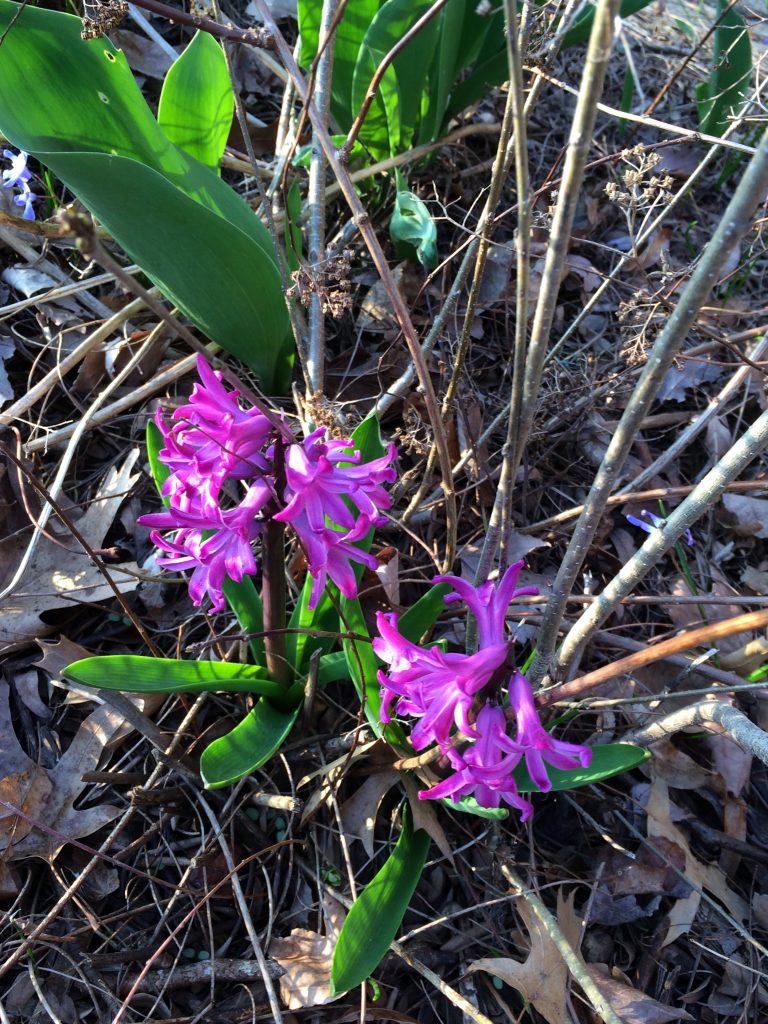
Hyacinths
Patient Trust By Tielhard de Chardin
Above all, trust in the slow work of God.
We are quite naturally impatient in everything
to reach the end without delay.
We should like to skip the intermediate stages.
We are impatient of being on the way to something
unknown, something new.
And yet it is the law of all progress
that it is made by passing through
some stages of instability—
and that it may take a very long time.
(read the whole poem here)
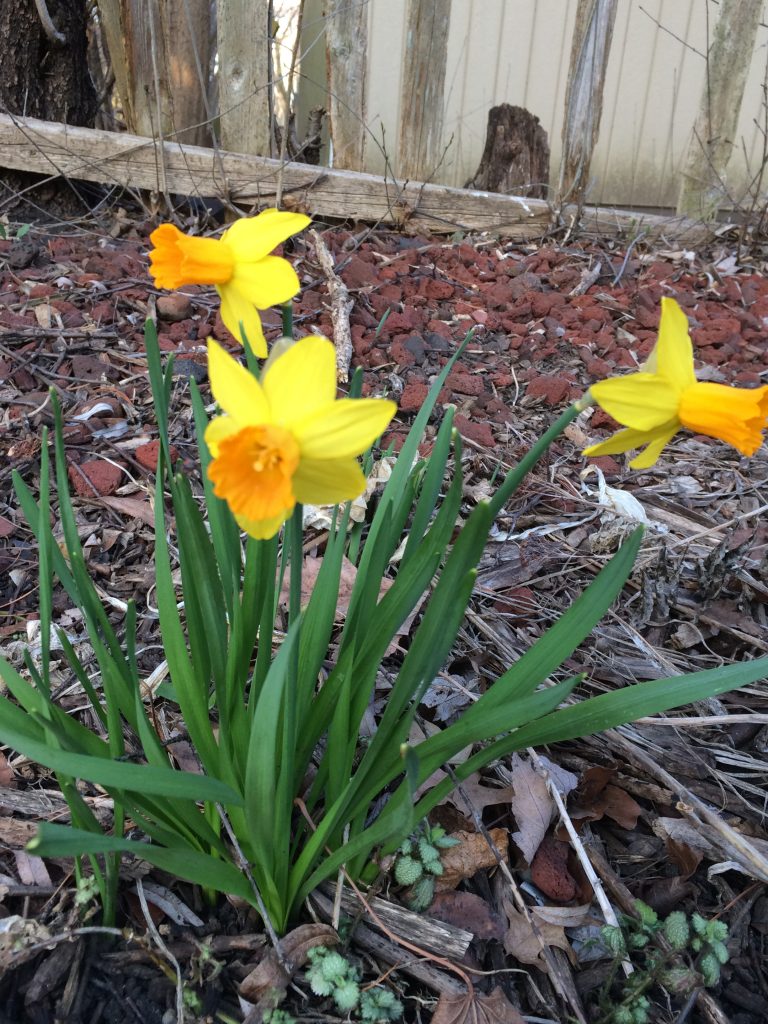
Daffodils

Leave A Comment